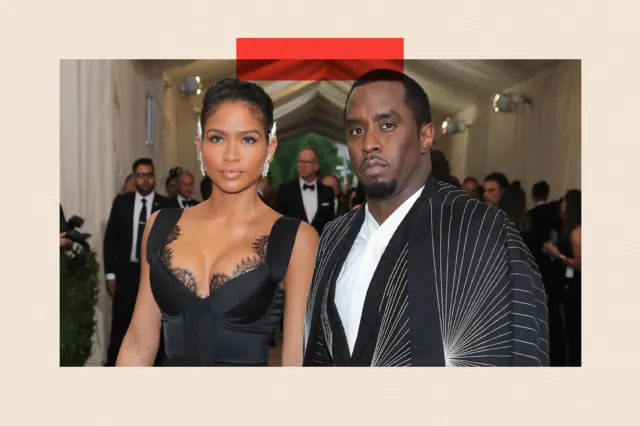After Diddy: Why Hip-Hop Is Still Struggling to Have Its Own #MeToo Moment
The recent trial and conviction of Sean “Diddy” Combs have brought a long-overdue spotlight to the complex and often challenging landscape of accountability within the music industry, particularly in hip-hop. While Hollywood has seen its own reckoning with the #MeToo movement, the hip-hop world appears to be lagging, grappling with systemic issues that protect powerful figures and silence survivors.
A Glimpse Behind Closed Doors
The trial testimony, including that of his former assistant Capricorn Clark, painted a disturbing picture of Combs’ alleged behavior. Clark recounted an incident in 2010 where Combs instructed his girlfriend, Casandra Ventura (also known as Cassie), to perform a series of commands, stating to Clark, “You won’t do that. That’s why you don’t have a man like me.” This account, and Ventura’s own testimony detailing years of alleged physical abuse, blackmail, and coerced sexual encounters, offered a stark view of the power dynamics at play.
Combs, a towering figure in music who helped bring rap to the mainstream, was found guilty on two counts of coercing individuals into prostitution. While acquitted of more serious charges like racketeering conspiracy and sex trafficking, the verdict has ignited conversations about the industry’s broader issues with sexual misconduct and the slow pace of change.
The Industry’s Playbook: Silence and Protection
Cristalle Bowen, a rapper and author, shared her perspective, stating, “The Diddy trial only highlights what many of us already know.” She describes a culture where misogyny is prevalent, leaving artists, particularly women, vulnerable to abuse. The financial stakes involved, she notes, complicate matters, with hush money, stalled careers, and the treatment of survivors creating a difficult environment to navigate.
Experts and campaigners agree that sexual abuse and harassment are not confined to hip-hop but are present across all music genres. A significant barrier, they argue, is a deeply ingrained culture of silence, often enforced through non-disclosure agreements (NDAs). While NDAs have legitimate uses, critics contend they are frequently weaponized to shield predators from accountability, leaving victims at risk of blacklisting, lawsuits, or termination.
“It makes for a very difficult decision for a lot of victims,” says lawyer Arick Fudali, whose clients include singer Dawn Richard, who testified against Combs. He notes that victims often face a choice between accepting a confidential settlement, which may offer less financial compensation, or pursuing a public lawsuit, which can attract intense scrutiny and backlash.
The Complexities of Race, Status, and Hip-Hop Culture
The issues are further compounded within hip-hop by the intersection of racism, misogyny, and a fierce protectiveness of a genre that has provided a vital avenue for success and cultural expression for Black artists. Hip-hop, born from the African-American and Latino communities, initially served as a powerful voice for liberation and resistance. However, as it ascended to become the dominant commercial music genre, questions of accountability for its titans have become increasingly complex.
The perception of figures like Combs as “racial pioneers” and successful Black entrepreneurs can foster a phenomenon known as “black protectionism,” as described by sociologist Katheryn Russell-Brown. This can lead to skepticism when accusations are leveled against elite members of the community, creating a reluctance to engage critically for fear of reinforcing negative stereotypes.
Black women, in particular, bear the burden of this dynamic. Professor Treva Lindsey highlights the fear that speaking out about misogyny in hip-hop could negatively impact the entire Black community. This creates a chilling effect, where the desire to protect the image of hip-hop can inadvertently shield perpetrators.
The Aftermath and the Road Ahead
The landscape is slowly shifting. Recent legal changes, such as New York and California’s Adult Survivors Acts, have created windows for survivors to bring forward claims concerning historic misconduct. While Combs’ lawsuit with Cassie Ventura was settled quickly, he faces numerous other civil cases and is awaiting sentencing.
The industry’s response to such allegations remains a critical point of discussion. Despite convictions and widespread accusations against figures like R. Kelly, their music continues to garner significant streams and listeners, illustrating a troubling “cognitive dissonance” among some fans who find it difficult to separate the art from the artist. As writer Thomas Hobbs observes, “I think some people are able to look the other way.”
The #MeToo movement in Hollywood brought about policy changes and increased awareness. Insiders hope similar shifts will occur in the music industry, potentially including the wider adoption of intimacy coordinators on music video sets. Advocacy groups are calling for mandatory reporting of assault allegations by those in power.
Ultimately, lasting change requires more than just high-profile verdicts. “The only way for me to believe that there’s been a reckoning would be to see changes in laws, policies, and actual business practices of the industry,” says Dr. Nikki Lane. The hope is that the ongoing conversations, amplified by events like the Diddy trial, will catalyze a deeper, more systemic shift toward accountability and safety within hip-hop and the broader music world.
For ongoing analysis and reaction to the verdict, listen to the Diddy on Trial podcast, available on BBC Sounds.

